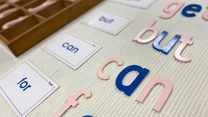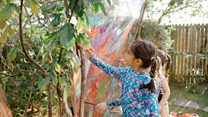The number of children being homeschooled has exploded in the Cayman Islands. Whether parents are choosing this due to practical reasons or philosophical preferences, their concerns are the same: how to provide the best home-based education they can.
On This Page
Children in the Cayman Islands can be homeschooled with prior approval from the Department of Education Services (DES), and like any educational programme, there is an application process and certain requirements to be met, which are discussed below. We also give an overview of the advantages, disadvantages and resources available for homeschoolers. In the 2023/2024 school year, approximately 118 children were enrolled in a homeschooling programme in Cayman.
Homeschooling may be a suitable option in cases where:
- A child is waitlisted but has not yet been offered a place in a private school
- A child has special educational requirements that schools may not have the resources to accommodate
- A child has been the victim of bullying at school
- The cost of private schooling is prohibitive for low-income families and/or those with multiple children
- Families travel frequently and wish to be able to take their children with them
- Parents want their children to follow a more flexible and individually tailored programme
- A child speaks a different first language and needs to learn English before transferring to a mainstream school.
The DES assesses individual requests for homeschooling on a case-by-case basis as they know there are some exceptional circumstances. They do not want children to get lost in the system. They understand that for schooling to work for some children, it might need to involve the use of special services, such as Speech and Language Therapy, and this can be included as part of the five hours per day of schooling. Registration for homeschooling is open between July 1st to 31st each year.

How to Apply for Homeschooling Approval
The Department of Education Services in the Cayman Islands now expects all applications for homeschooling to be made online. See their 'Registration for Homeschooling' page where you will find the forms and submit your supporting documentation. If you need to visit Kimberly Kirkconnell at the DES, then their address is 130 Thomas Russell Avenue, George Town, which is just off the Cayman National Bank roundabout.
You will be required to create an Individualised Homeschool Plan (IHSP) which must include:
- The child’s name, age and grade level
- Location and address of the home school
- A list of the syllabi, curriculum materials, textbooks or plan of instruction to be used in the core subjects
- A timetable which shows the subjects covered on which days and at what time. This would also include any outside activities or online classes
- The dates for submission of the annual report
- Names and qualifications of individuals providing instruction
- A statement confirming the child will be meeting compulsory educational requirements of the Education Law 2016 (Regulations).
For parents wishing to apply after the start of the school year (end of August), written notice must be provided within 14 days of arrival to the Island. Once a family or child is a resident, then the child must be registered with a school.
The Director of the Department of Education Services will inform parents if their application has been approved in a timely manner. If approved, a homeschooling certificate is issued, valid until the end of the school year (30th June).
Related Articles
Qualifications for Homeschoolers
Although not mandated, it is highly recommended that the parent or tutor providing instruction should hold the following qualifications:
- Primary - the parent(s) must have at least a high school diploma
- Secondary - the parent/tutor should have a minimum of a bachelor’s degree from an accredited institution.
The DES strongly recommends that an accredited programme for homeschooling be used. If you visit www.homeschool.com, you will find lots of suggestions. Alternatively, look into the UK-based homeschooling group Wolsey Hall, Oxford, or you could try Abeka. Accredited programmes, such as K12, have online teachers who can help. However, if a parent wanted to use a programme that is not accredited (which many parents choose to do), the DES will consider the programme and make a decision based on whether the curriculum meets their standards. Finding and using an accredited programme is something many parents get worried/stressed about, and knowing there is room to use a programme that is not accredited (as long as it is approved by the DES) can sometimes set their minds at ease.
Teaching Requirements
The DES requires that the school day be at least five hours, excluding recess and lunch, and that there be at least 185 days of instruction or the equivalent of 925 hours in the school year.
The curriculum must include reading, writing, mathematics, sciences, arts, physical education, social studies and the history and culture of the Cayman Islands, and though it does not have to be an accredited programme, it is encouraged. Parents/tutors must maintain a record of attendance and submit an annual report on the student's progress to the DES in the 10th month of the school year (June). If there are any changes to the programme, the DES must be advised in writing.
The DES will conduct one home visit as part of the registration process and, if deemed necessary, they will make an unscheduled second visit. Where necessary, they will liaise with the Office of Education Standards for assessment and reporting.

Pros & Cons of Homeschooling
The main advantages homeschooling parents report are being able to spend more time with their children and having the ability to adapt the teaching to a child’s learning style and interests, ensuring they receive a quality education and plenty of individual attention.
The flexibility homeschooling offers is also key: classes can be held in any location and at the time one chooses, enabling parents to fit schooling around other commitments.
On the other hand, homeschooling is time-consuming for the parent (or tutor) providing instruction, and thus means that one parent usually cannot work and therefore cannot contribute to the family’s income. It also means the ‘teaching’ parent may get little or no time apart from their children.
Socialisation & Friendship for Homeschooled Children
One of the most frequently asked questions that parents of homeschooled children get asked is whether there is a danger that a child might miss out on socialising with their age group and have fewer friends than a regular school student. It’s a valid concern, but there is much that can be done to ensure a child does not become isolated.
Enrolling kids in extracurricular activities, sports lessons, church groups, music and art lessons all ensure they meet and socialise with kids of their age. Where one lives can also be influential; some residential areas are particularly family-friendly, guaranteeing there will be plenty of other kids around to play with.
The 'Cayman Homeschoolers' Facebook group was set up specifically so that parents and children could connect with other homeschooling friends. These children go on field trips with other parents and children and time is specifically set aside each week to socialise with the other kids. A homeschooling family can become just as busy with extracurricular activities as any other public/private school family.
Related Articles
Resources & Tutors for Cayman Homeschoolers
The Cayman Homeschoolers Group has worked diligently to create a dedicated homeschooling website which provides everything needed to homeschool in the Cayman Islands. It includes the application procedures and documents, curriculum list, resources for tutoring/educational assessments/therapy, how to write your reports, FAQ, etc. You can also sign up to their emailing list so that you can be kept in the know on when any events and gatherings are happening. See their website here.
There are also a growing number of companies and individuals who are helping homeschooled students with specific subjects:
- High Achievement Academy and have highly qualified and experienced teachers from the UK and USA if you want your child to have additional tutoring in a specific subject.
- Baobab offers reading intervention, dyslexia support, early literacy, parent literacy consulting and socio-emotional support programmes.
- Cayman Learning Centre offers small group and one-on-one tutoring alongside the Arrowsmith programme, which is aimed at getting to the root of learning difficulties.
- Alpha Academy, in the Cayman Islands, offers full time tutors in STEM (science (physics, chemistry and biology), technology (including IT), engineering and maths) as well as English and Spanish for students from primary school age to college level.
- Claude Bailey tutors Maths from grades 3-12 and university level. He also runs an intensive maths summer camp.
Homeschooled students have a variety of opportunities available to them and are invited to participate in many competitions offered to the schools (Sea Perch, Inter School Chess Tournament, First Robotics, Inter School Math Competition and the Rotary Club Science Fair).
Helpful Tip
Whilst private tutoring centres and other activity providers can be an excellent supplemental resource for homeschooled children, the Department of Education Services has emphasised that the majority of homeschool instruction must be delivered at home. This means that you cannot rely on private tutoring centres to provide the bulk of your child’s learning programme.









